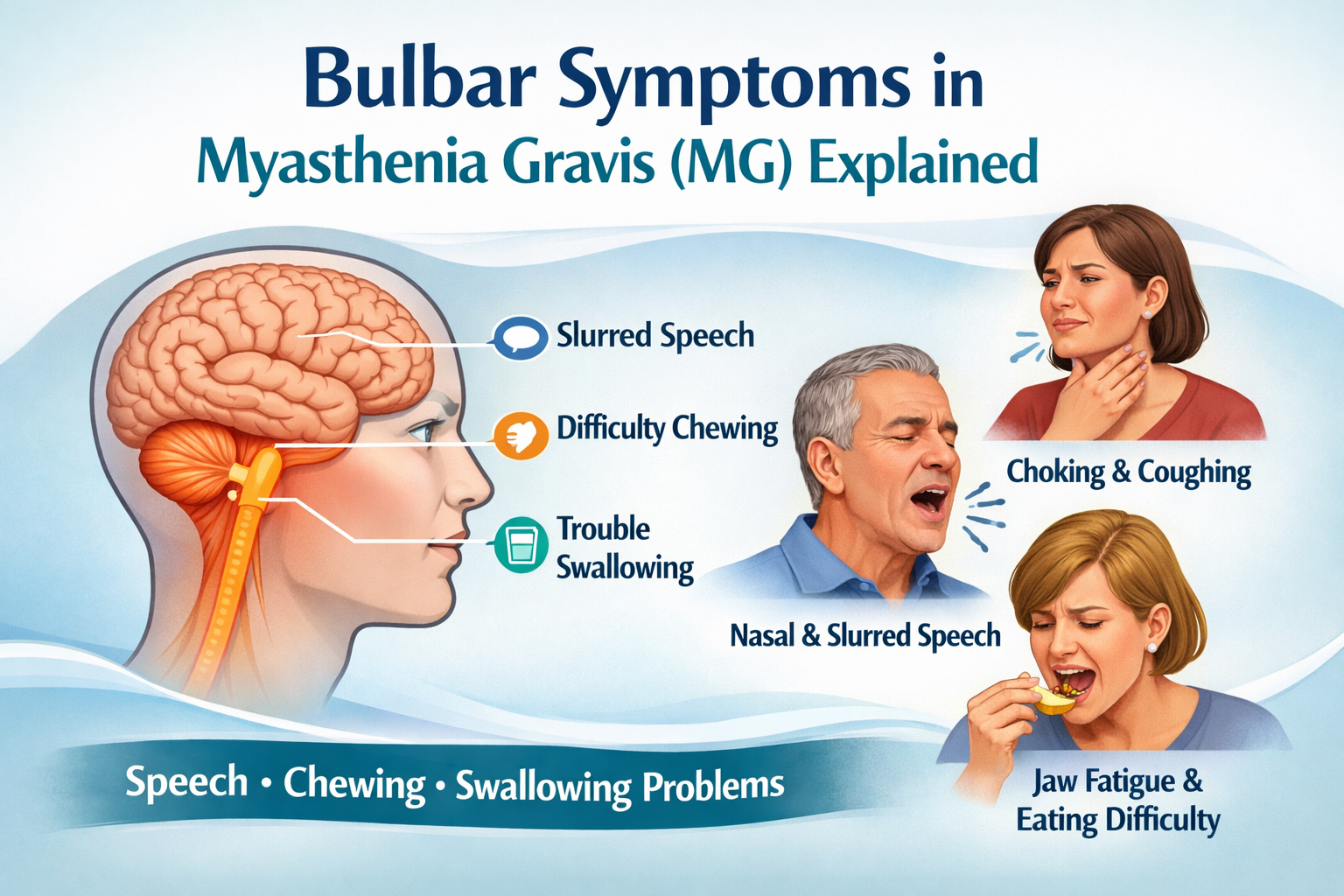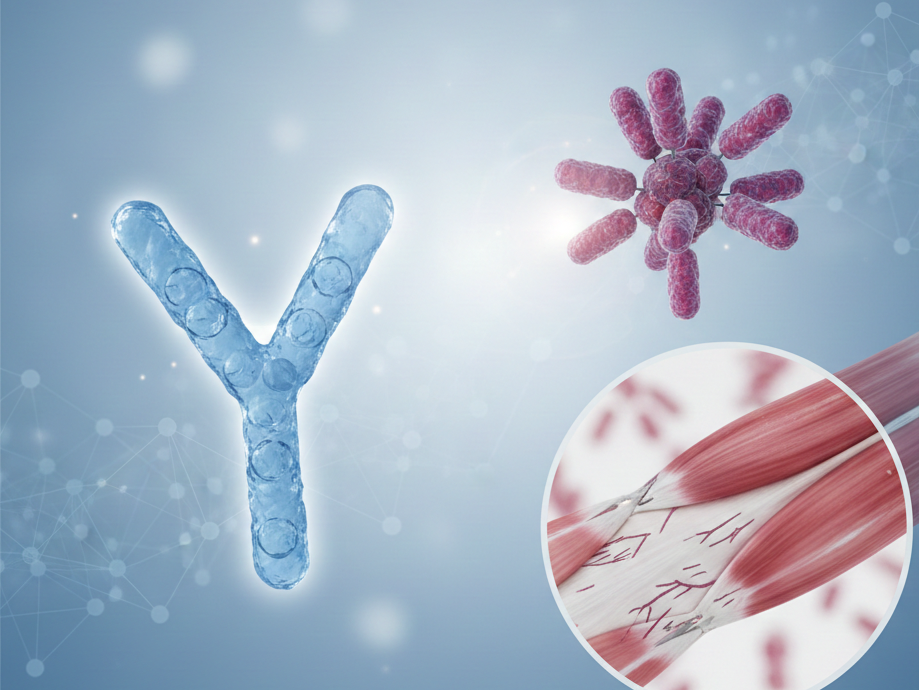Nutrition and Myasthenia Gravis: Foods to Avoid


have already shared their stories
Managing Myasthenia Gravis involves more than just medication and treatments. Diet plays a crucial role in managing symptoms and maintaining overall health. This blog post will explore foods to avoid with Myasthenia Gravis, recommended foods for Myasthenia Gravis, and provide nutrition tips for Myasthenia Gravis patients.
Understanding Myasthenia Gravis and Diet
Myasthenia Gravis is an autoimmune disorder that affects the communication between nerves and muscles, leading to muscle weakness and fatigue. While no specific diet can cure Myasthenia Gravis, certain nutritional choices can help manage symptoms and improve quality of life.
Foods to Avoid with Myasthenia Gravis

Certain foods can exacerbate the symptoms of Myasthenia Gravis or interfere with the effectiveness of medications. Being mindful of these foods can help in better managing the condition.
High-Fat and Processed Foods
Foods high in fat and heavily processed foods can lead to weight gain and increase fatigue, making it harder to manage Myasthenia Gravis. Examples include fried foods, fast food, and processed snacks and sweets. These types of foods not only contribute to weight gain but also can make you feel sluggish, adding to the fatigue already experienced with Myasthenia Gravis.
Foods High in Sugar
Excessive sugar intake can cause energy spikes and crashes, leading to increased fatigue. It is best to avoid sugary drinks like soda and energy drinks, candy, and desserts high in sugar, as well as sweetened cereals. These foods can lead to rapid fluctuations in energy levels, which are particularly detrimental to someone managing an energy-dependent condition like Myasthenia Gravis.
Foods High in Salt
High salt intake can lead to water retention and high blood pressure, which may exacerbate symptoms. Limiting the consumption of salty snacks like chips and pretzels, processed meats such as bacon and sausages, and canned soups and vegetables with added salt can help manage these issues. Salt can increase blood pressure and cause additional stress on your body, potentially worsening symptoms.
Alcohol
Alcohol can interfere with muscle function and the effectiveness of medications used to treat Myasthenia Gravis. It is advisable to limit or avoid alcohol consumption altogether. Alcohol not only affects muscle function but also can interfere with the medications you might be taking, reducing their effectiveness and potentially causing harmful side effects.
Recommended Foods for Myasthenia Gravis

While it's important to avoid certain foods, incorporating nutrient-rich foods into your diet can help manage symptoms and support overall health.
Fresh Fruits and Vegetables
Fruits and vegetables are rich in vitamins, minerals, and antioxidants that support the immune system and overall health. Aim to include a variety of colorful fruits and vegetables in your diet, such as berries, apples, oranges, leafy greens like spinach and kale, and cruciferous vegetables like broccoli and cauliflower. These foods provide essential nutrients that can help keep your immune system strong and your body healthy.
Lean Proteins
Lean proteins provide essential nutrients without excessive fat. They can help maintain muscle strength and overall energy levels. Good sources include chicken, turkey, fish, seafood, and legumes like beans and lentils. These proteins are vital for muscle repair and maintenance, especially important in a condition that affects muscle strength.
Whole Grains
Whole grains are a great source of fiber and provide sustained energy. Examples of whole grains to include in your diet are brown rice, quinoa, and whole wheat bread and pasta. Whole grains help keep your energy levels steady throughout the day, which is crucial for managing fatigue in Myasthenia Gravis.
Healthy Fats
Healthy fats support brain function and overall health. Incorporate sources of healthy fats such as avocados, nuts, seeds, and olive oil into your diet. These fats are beneficial for maintaining overall health and providing a steady source of energy.
Nutrition Tips for Myasthenia Gravis Patients
Adopting specific nutritional strategies can help manage the symptoms of Myasthenia Gravis more effectively.
Stay Hydrated
Staying well-hydrated is crucial for muscle function and overall health. Aim to drink plenty of water throughout the day and limit caffeinated beverages that can lead to dehydration. Proper hydration helps ensure that your muscles work efficiently and reduces the risk of cramping and fatigue.
Eat Small, Frequent Meals
Eating smaller, more frequent meals can help maintain energy levels and prevent fatigue. This approach can also make it easier to manage any difficulties with chewing and swallowing, common issues for Myasthenia Gravis patients. By eating smaller portions more often, you can avoid the energy dips that might come from larger meals.
Monitor and Adjust
Pay attention to how different foods affect your symptoms and adjust your diet accordingly. Keeping a food diary can help identify any food-related triggers and improve overall management of Myasthenia Gravis. This personalized approach allows you to tailor your diet to your specific needs and symptoms.
Consult a Dietitian
Working with a registered dietitian can provide personalized nutritional advice tailored to your specific needs and help create a balanced diet plan that supports your health and well-being. A dietitian can help you navigate dietary restrictions and ensure you are getting the necessary nutrients.
Conclusion
Diet and nutrition play a vital role in managing Myasthenia Gravis. By avoiding certain foods and incorporating recommended nutritional choices, patients can better manage their symptoms and improve their quality of life. Remember to stay hydrated, eat balanced meals, and consult with healthcare professionals to create a diet plan that works best for you. With the right dietary approach, living well with Myasthenia Gravis is achievable.

have already shared their stories
Sources
- Myasthenia Gravis Diet: 4 Foods To Eat and 4 To Avoid
This article discusses foods beneficial for individuals with Myasthenia Gravis, including eggs, yogurt, avocados, and green smoothies, while also highlighting foods to avoid.
MGteam . - Best Diet for Myasthenia Gravis
This article provides comprehensive advice on the best dietary practices for managing Myasthenia Gravis, including meal planning and foods to avoid.
AmeriPharma Specialty Care . - Five-Month Trial of Whole-Food Plant-Based Diet in a Patient With Coexisting Myasthenia Gravis and Lambert-Eaton Myasthenic Syndrome
This case study examines the effects of a whole-food plant-based diet on a patient with Myasthenia Gravis, noting improvements in symptoms and quality of life.
NCBI . - Tips for Eating and Drinking with Myasthenia Gravis
This article discusses practical tips for individuals with Myasthenia Gravis to make eating and drinking easier while managing their symptoms.
Myasthenia Gravis Foundation .










